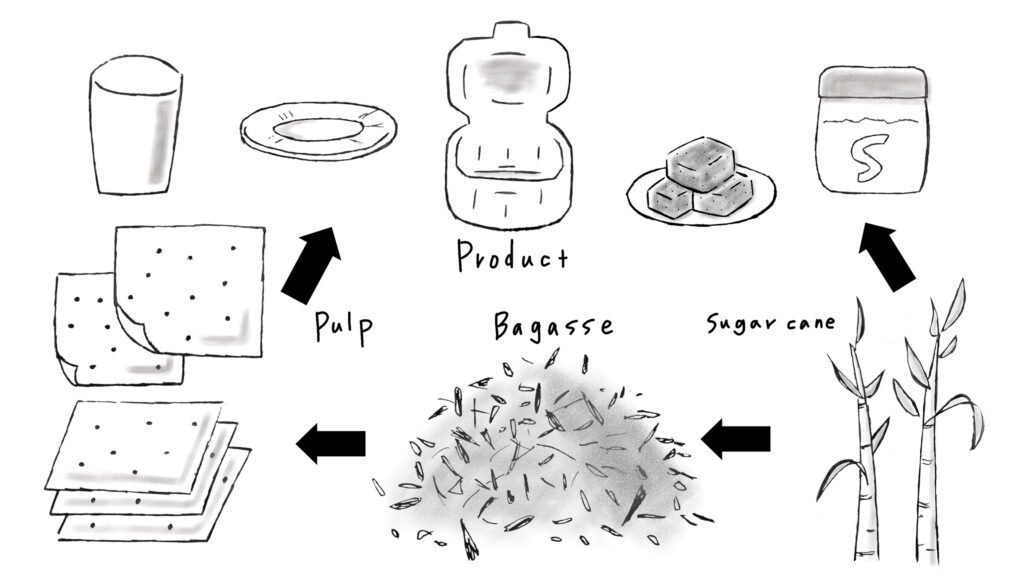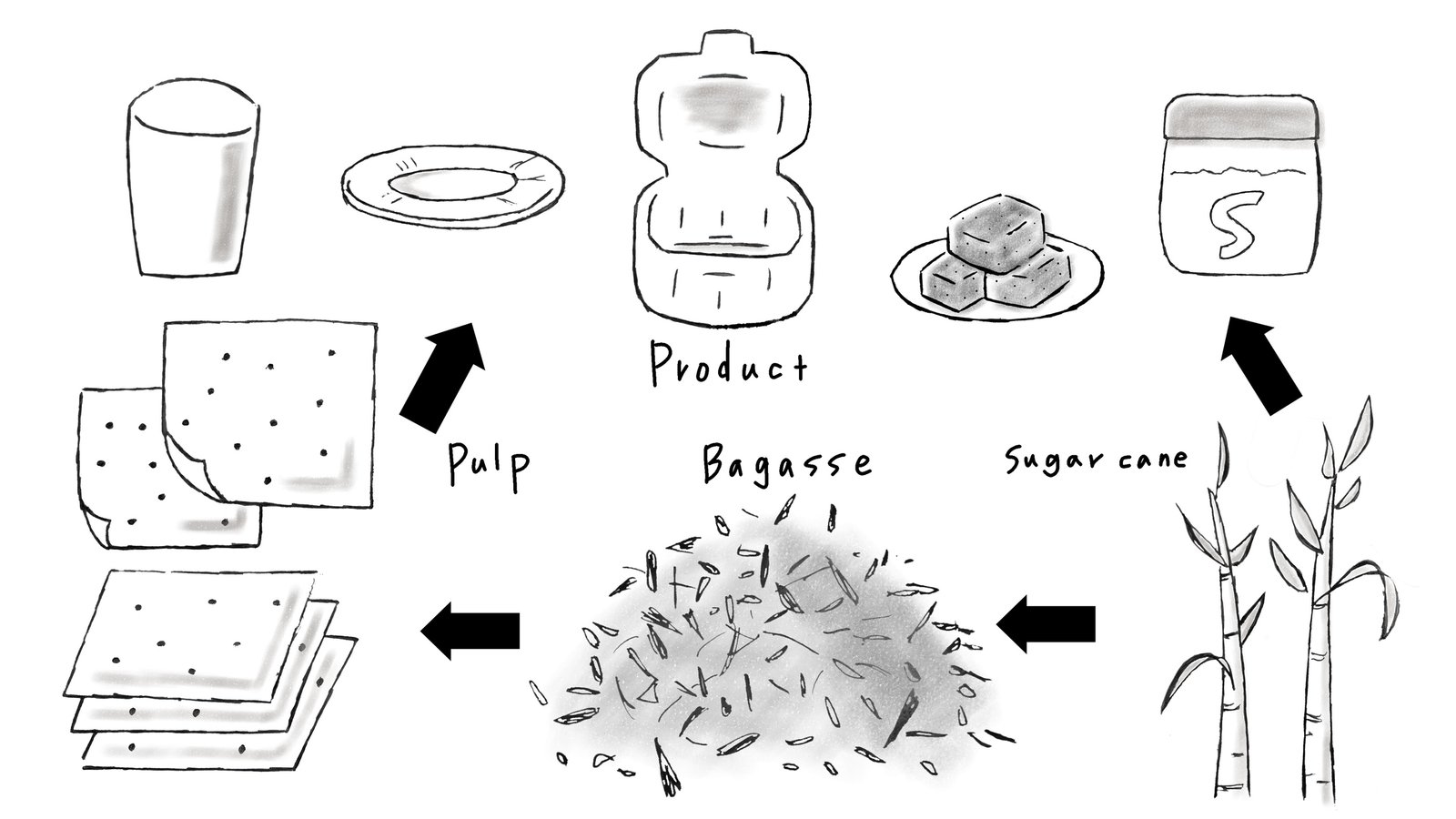
India’s Leadership in Sugarcane Farming and Bagasse Utilization
India, being one of the world’s largest producers of sugarcane, has a unique advantage when it comes to sustainable manufacturing. After extracting sugarcane juice to meet the demands of its immense population, sugar mills are left with a fibrous residue known as bagasse. Historically considered a byproduct, bagasse has emerged as a key raw material for manufacturing biodegradable and compostable tableware. This shift highlights India’s growing commitment to sustainability and innovative use of agricultural residues.
A Ban That Opened Opportunities
The Indian government’s recent ban on single-use plastics and foam-based tableware has accelerated the demand for eco-friendly alternatives. Paper and bagasse-based tableware have gained immense popularity, driven by their biodegradable properties and suitability for various applications.
From food delivery services to grand Indian weddings, bagasse-based plates and tableware have become the go-to choice. They are not only eco-friendly but also sturdy, heat-resistant, and cost-effective, making them an excellent replacement for traditional paper and leaf-based tableware.
India’s Rich Heritage in Sustainable Tableware
Sustainability is deeply rooted in India’s cultural heritage. Historically, Indians have used natural materials like banana leaves, dried leaf bowls, and clay tea cups for dining. These practices reflect the country’s longstanding emphasis on harmony with nature. The rise of bagasse-based tableware is a modern continuation of this ethos, combining traditional values with cutting-edge technology.
The Growing Industry for Bagasse-Based Tableware
India is witnessing a significant growth in factories specializing in bagasse-based tableware. These facilities leverage custom dies to produce high-quality plates, bowls, and other tableware that meet international standards. Not only are these products comparable to those manufactured in China or other countries, but they are also available at competitive prices, making India a strong contender in the global biodegradable tableware market.
Challenges in Exporting Bagasse-Based Tableware
Despite their potential, Indian manufacturers often face challenges in catering to the specific needs of Western markets. These challenges include:
- Understanding mold and design requirements for custom tableware.
- Ensuring appropriate packaging for retail-readiness.
- Meeting specific certifications and compliance standards for different countries.
How Mercanetix Bridges the Gap
This is where Mercanetix comes into play. At Mercanetix, we specialize in helping Western buyers connect with Indian manufacturers who produce high-quality, sustainable bagasse-based tableware. Here’s how we help:
- Customization and Sampling: We ensure that the products meet Western design and functional requirements by coordinating custom molds and samples.
- Retail-Ready Packaging: We help manufacturers understand packaging preferences, ensuring that products are ready for retail shelves.
- Doorstep Delivery: With seamless logistics, we ensure that buyers receive their products hassle-free.
- Certifications and Compliance: We assist in verifying certifications and compliance for exports, ensuring products are market-ready for Western countries.
Join the Sustainability Movement with Mercanetix
At Mercanetix, we are committed to promoting sustainability and ethical sourcing. Whether you’re a buyer looking for biodegradable tableware or a manufacturer seeking to expand into international markets, we’re here to help.
Schedule a free consultation today to explore how we can assist you in adopting sustainable practices while making a positive impact on the environment.


